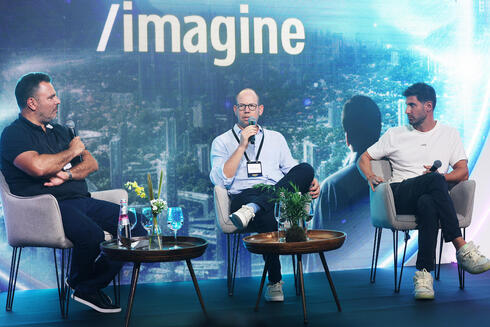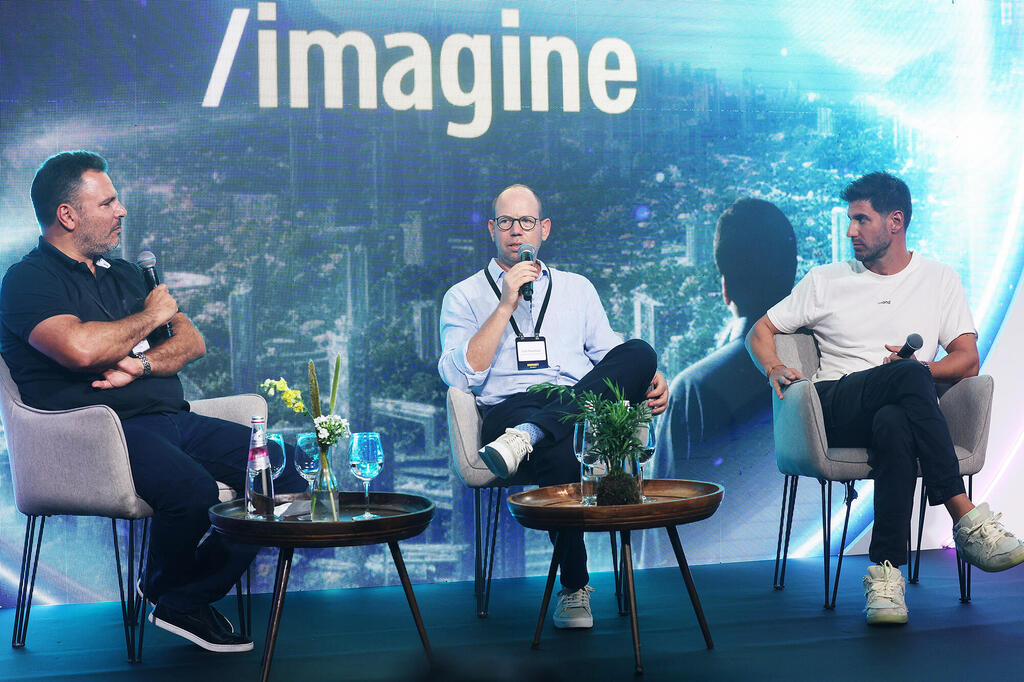
Gili Raanan: “I don't believe there is a bubble in cyber”
"The world is facing a cyber crisis, exacerbated by geopolitical forces. As a result, we are seeing new companies emerge in the cyber sector, with valuations rising due to high demand and necessity," added Raanan, founder of Cyberstarts. "I’m convinced that we have the best engineers in Israel," noted Island co-founder and CTO Dan Amiga.
"I won’t surprise anyone by saying that I don't believe there is a bubble in cyber," said Gili Raanan, founder of the Cyberstarts VC fund during a panel moderated by Zohar Alon, a cybersecurity investor and Chairman of startup Firefly. The panel, which also featured Dan Amiga, co-founder of cyber startup Island, took place at the annual Journey conference, hosted by the consulting and accounting firm EY. This conference, held for over 25 years, serves as a meeting platform for leading investors, entrepreneurs, and startups. The discussions focused on global tech trends, strategies for addressing current challenges, and the development of the tech sector in Israel.
"We live in a world where cyber protection is a necessity for every organization," Raanan emphasized. "If you look at the recent cyberattacks, including those on AT&T, the theft of United's data, and more, the world is facing a cyber crisis, exacerbated by geopolitical forces. This creates a need for innovation and solid cyber foundations. As a result, we are seeing new companies emerge in the cyber sector, with valuations rising due to high demand and necessity."
Amiga expressed his surprise at how easy it remains to breach major companies. "The business demand is real," he stressed. "When you combine that with how strong the cyber industry is in Israel, it naturally attracts investors."
Island was founded in September 2020 by Mike Fey, the company’s CEO, and Amiga, its CRO. In 2017, Amiga sold his previous company, Fireglass, to Symantec for $250 million, where Fey had served as CEO. Island now employs about 250 people, 150 of whom are based in Israel. Its estimated revenues this year are expected to reach tens of millions of dollars.
When Alon asked why it's advisable to approach the American market from the United States rather than from Israel, Raanan responded, "There is more than one way to succeed, but this is the simplest and least risky way for companies to establish their go-to-market strategy. The U.S. is the largest market with the best investors. Compared to other markets in Europe or Asia, it’s more homogeneous, making it easier for early-stage companies to build their market presence there."
Amiga added, "I have always raised capital from American funds, and they consistently say that if you succeed in the United States, you don’t necessarily need to succeed elsewhere. When building a company, you need to deeply analyze the needs of the market. Gil Shwed has spoken about this before – Americans have great expertise in go-to-market strategies."
In response to Alon’s question about what aspects of Israeli culture allow the country to lead the industry, Amiga encouraged entrepreneurs to "think big." He referred to the "Israeli audacity," but added, "That's not enough. The second thing is that you need to raise a lot of money and hire an exceptional engineering team."
"I’m convinced that we have the best engineers in Israel," he said. "We need founders who can think big, incredible talent, and access to funding," he added.
Raanan concluded, "We are in a very competitive market, and when you have companies like Wiz, Island, or Check Point, the next entrepreneur is motivated to build an even bigger and better company. This is what drives the industry forward."














